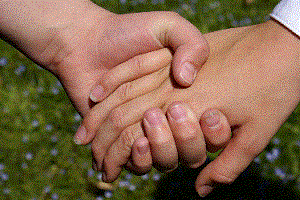
“We know very little about long-term recovery from alcohol and other drug use disorders” points out Dr Stephan Arndt, Editor-in-Chief of Substance Abuse Treatment, Prevention, and Policy in his guest blog Looking away from addiction and towards recovery.
This is one of a blog series highlighting the role research plays in helping people recover from addiction, and showcases the personal success story of one person in recovery, Bruce A. Campbell. Bruce is now the Clinical Director of Wellspring, Inc., a private non-profit corporation based in Maine, USA which provides residential and outpatient services that foster recovery for addiction, including those affected with co-occurring mental health disorders.

Bruce’s story:
As a person in long-term addiction recovery of 28 years, I was amazed when I first read Bonnie Benard’s article on Fostering Resiliency in Kids: Protective Factors in the Family, School, and Community in the early 1990’s. I immediately thought of its appropriateness to the addiction recovery community. The attributes of a resilient person (social competence, problem-solving skills, a sense of autonomy, and hope for the future) are the exact attributes of a person in recovery. And the precise environmental protective factors that foster resiliency foster recovery from addiction. High expectations, caring and support, and opportunities for meaningful participation are inherently imbedded within the recovery community.
From my own experience, I had to learn how to re-socialize without drugs and alcohol, an essential skill of early recovery. I had to learn how to think things through, and develop decision-making skills that support my recovery. My recovery leads me toward the highest level of autonomy of which I am capable. My recovery emerges from both hope and gratitude. I have re-built my life: I have remained married, raised a family, own my own home and have sent my children through college. While I hope my example may serve others, I need only reference my own life to re-energize my hope and possibilities for the future.
The recovery community has played a critical role in fostering my own resiliency. Maintaining abstinence one day at a time is an example of a high expectation packaged in an attainable goal, one that I practice on a daily basis. The recovery adage “Let us love you until you can love yourself” is a powerful example of the caring, support, and acceptance that I experience from my community. I accept my addiction and I am responsible for my recovery. My recovery is proportional to my willingness and opportunities for me to participate in the recovery process.
As efforts continue toward developing a recovery-oriented system of care, resiliency points to common ground between prevention specialists, treatment providers, and the recovering community. Perhaps its greatest power lies in its simplicity. While the prevention language of resiliency is now being applied to recovery, little effort has been directed to the science of resiliency and its application to treatment and recovery. There is a call for such study. I believe treatment and recovery outcomes can be powerfully influenced by the strength of environmental protective factors because it has done just that in my life.
Comments